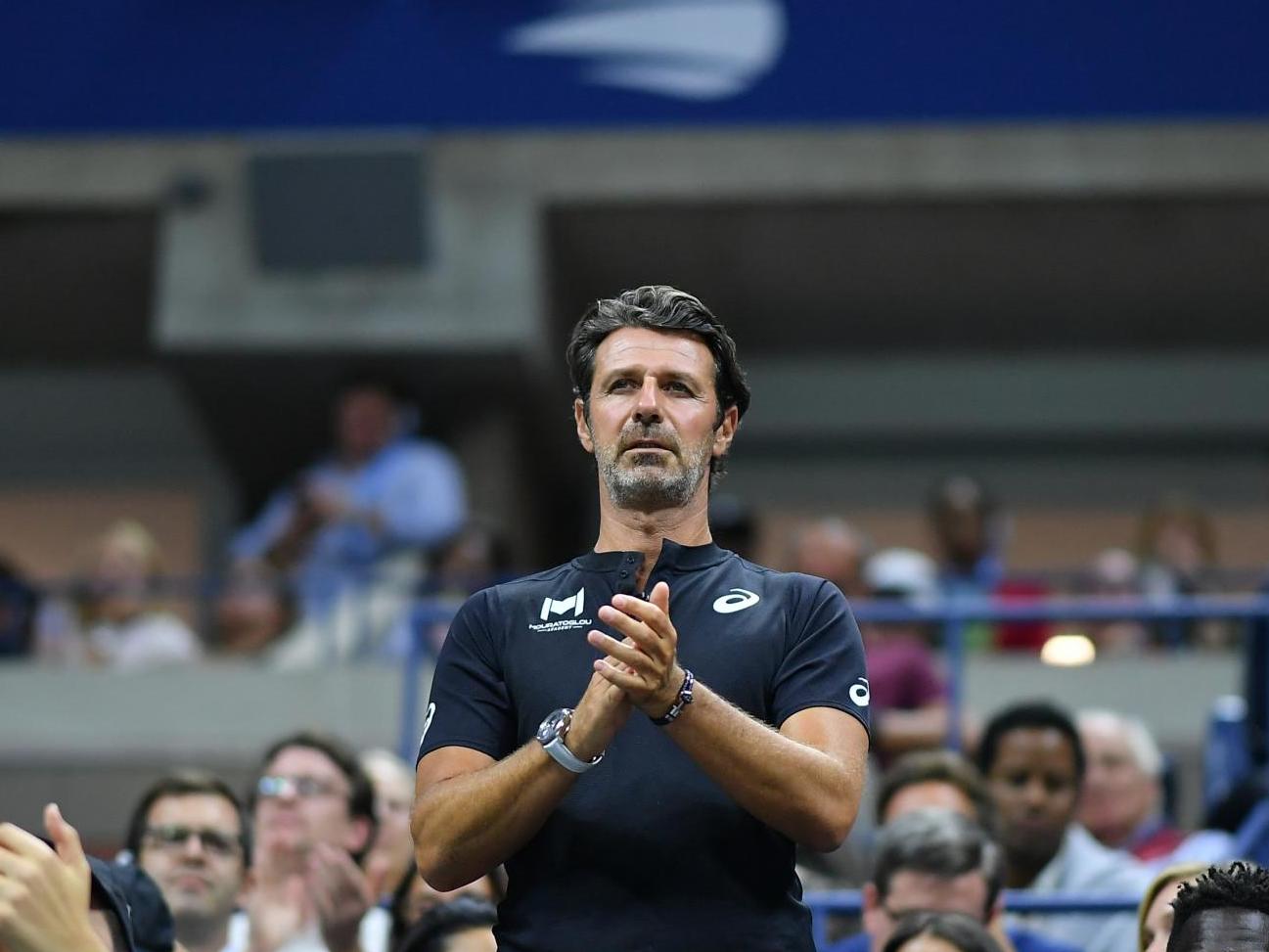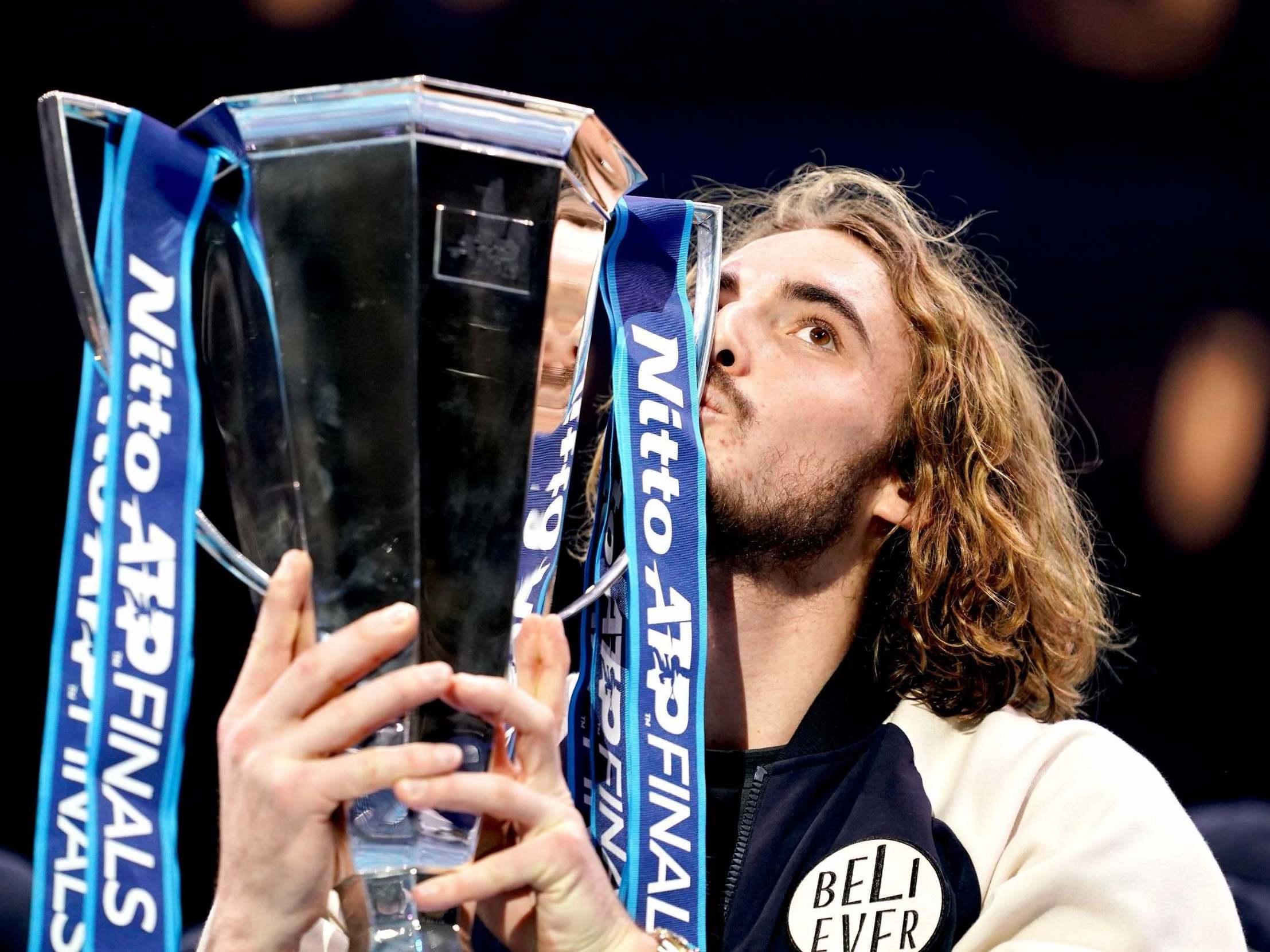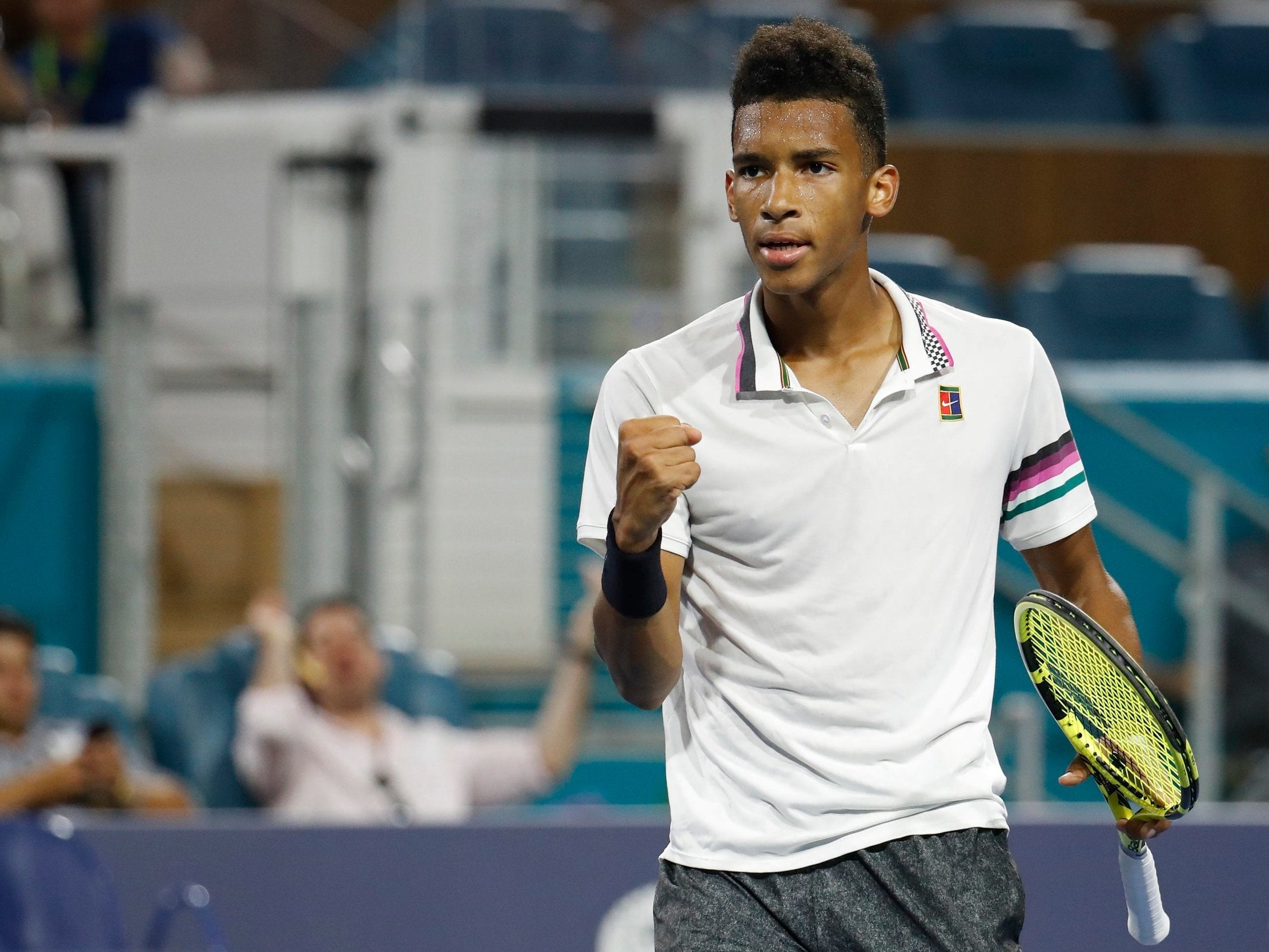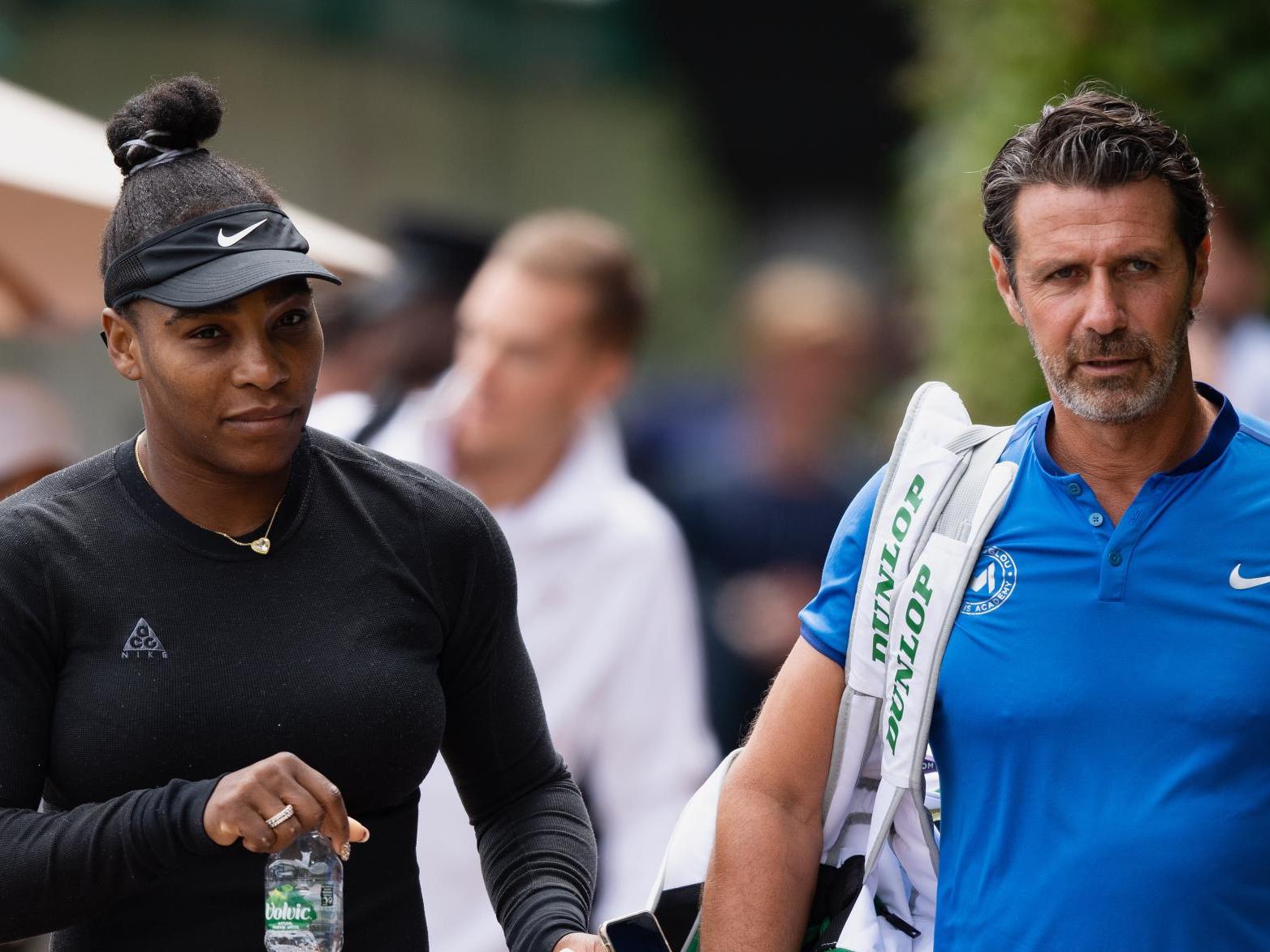Patrick Mouratoglou: Ultimate Tennis Showdown will revive sport’s ‘authenticity’ to save its future
Interview: Coach to Serena Williams and mentor to Coco Gauff divulges his plan to save tennis from extinction: a brand new competition to tackle the issues plaguing the sport

Your support helps us to tell the story
From reproductive rights to climate change to Big Tech, The Independent is on the ground when the story is developing. Whether it's investigating the financials of Elon Musk's pro-Trump PAC or producing our latest documentary, 'The A Word', which shines a light on the American women fighting for reproductive rights, we know how important it is to parse out the facts from the messaging.
At such a critical moment in US history, we need reporters on the ground. Your donation allows us to keep sending journalists to speak to both sides of the story.
The Independent is trusted by Americans across the entire political spectrum. And unlike many other quality news outlets, we choose not to lock Americans out of our reporting and analysis with paywalls. We believe quality journalism should be available to everyone, paid for by those who can afford it.
Your support makes all the difference.Patrick Mouratoglou is fearful for the sport he loves.
As he sees it, tennis desperately needs to evolve, because in its current form it is headed towards extinction. And as charming and respectful as Mouratoglou is – and no matter how tightly his heart is tied to tennis – he is more than capable of offering a lacerating condemnation of the game.
“I have been seriously worried for quite a long time now, and things are not getting better,” Mouratoglou – coach to Serena Williams and mentor to Coco Gauff – tells The Independent. “We’re living literally on the fans we convinced in the ‘70s and ‘80s. Sixty-one-years-old for a fanbase for sport… if it was for classical music, it would be fine, but for sports it’s extremely old and getting older.
“So the future of tennis is not bright at all.”
In Mouratoglou’s mind, the reason tennis has stagnated and even regressed since the peak of its popularity in the 1970s and 1980s is in large part due to its suppression of character via a constrictive code of conduct.
“Tennis is fake,” the 49-year-old says with evident frustration. “We have real characters, but they don’t dare to be themselves, and the code of conduct has a lot to do with that. You kill the emotion by standardising the behaviours on court. I want authenticity. I want people to be free.”
Mouratoglou believes players’ reticence comes from a fear of punishments that are disproportionate to those in other sports.
“Who are the governing bodies to say what is a good and a bad behaviour? I think that’s unacceptable, even from an ethical point of view. I don’t think anyone on this planet should be able to point at people and say this. For example, if it’s not dangerous for other people, you should be allowed to break a racket. It’s my racket, it’s my problem.
“There is no story, there is no drama, that’s the problem with tennis. The story of two guys with a tennis ball? You know exactly what’s gonna happen.
“When you watch the top guys, you know there will be no drama all match. They’re gonna wipe their face between points, they’re gonna ask for balls, they’re gonna choose the ball, they’re gonna bounce the ball 200 times, they’re gonna hit the ball, and that’s it. That’s the whole story.”

How can tennis develop a more compelling narrative? Alongside tech entrepreneur and business partner Alex Popyrin, Mouratoglou has rewritten the script, inserting a new plot device: Ultimate Tennis Showdown.
Mouratoglou and Popyrin’s brainchild was conceived as an “innovative, modern” means of challenging the existing model of tennis – one that Mouratoglou believes has not changed “in almost 40 years”. He and Popyrin want to synthesise what was “great about tennis in the ‘70s and 80s” with “the future”, in order to refresh the sport.
They aim to make their new platform engaging to existing and new fans by streamlining the scoring system, bringing out players’ characters with a much-relaxed code of conduct, and allowing viewers to virtually interact with players between points from their own homes, rather than having crowds present around the court.
“How much has the world changed in 40 years? Incredibly,” says Mouratoglou, who also coaches ATP Finals champion Stefanos Tsitsipas. “How much has the digital world brought? It’s changed our lives. People consume the sport completely differently. For the classical governing bodies of tennis, it’s extremely difficult for them to change – and maybe it’s better if they don’t change, but someone has to do it.
“I propose this: Don’t change anything. I’m gonna change everything. And then we’ll see. Maybe people will like it.”
The inaugural edition of Ultimate Tennis Showdown (UTS) will begin on 13 June, with two rounds taking place each weekend at the Mouratoglou Academy on the French Riviera, and a final set for 12 July.
The invite-only field will feature 10 men’s players, nine of whom have been confirmed so far; world No 6 Tsitsipas; world No 8 Matteo Berrettini; world No 10 David Goffin; 19-year-old Felix Auger-Aliassime; fan favourite Dustin Brown, world No 103 Alexei Popyrin; and Frenchmen Benoit Paire, Lucas Pouille and Richard Gasquet.
As well as viewing UTS as a means of refreshing tennis’ lifeblood – its fans – Mouratoglou sees the competition as a long-term solution to the issue of financial disparity in the game, something he recently addressed in an open letter to the sport.
This week, Forbes named men’s world No 4 Roger Federer the highest-paid athlete in the world for 2020, but while the top-ranked players live comfortably, many ATP and WTA Tour members barely earn enough money to get from one tournament to the next.
“I don’t want to accuse [the top players],” Mouratoglou says, “I just think the way the money is spread is not right. You cannot have three players who kind of get 90 per cent of the money of all the players on the planet. It’s completely insane.

“They’re the best in the world and it’s a good reward for them, but again we have to review how the money is distributed. Nobody took a decision on that, so I decided I’m gonna do it.”
Every UTS match will carry a purse, with the winner claiming 70 per cent and the loser walking away with the remaining 30 per cent, so as to ensure a better distribution of income among players.
“I’m not saying we have the perfect product, I’m just saying we want to move the lines, we want to propose something different,” Mouratoglou says. “We want to create the format of the future for tennis. But for that, we’re extremely open.
“What we did is look at all the issues and propose solutions; they might change if we see that it’s not the right answer. We need the help of everyone and we’re listening to anyone who has something to say about it.
“If we work all together for the good of tennis, we’ll find the right format, I don’t have a doubt about it.”
Due to the disruption caused by the coronavirus crisis, final details regarding scoring formats are still yet to be determined. The same applies to broadcasting set-ups, though Mouratoglou is not concerned, saying: “We have a proposition on the table from most of the biggest broadcasters on the planet.”
Two matches per day will air on TV and five will be available on an online platform, for which viewers will require a monthly subscription – priced at roughly £10 per month. The subscription service will provide replays, highlights, player interviews, footage of training sessions and other relevant content.
Mouratoglou calls the upcoming edition of the tournament ‘UTS 1’, with further iterations following immediately as the competition is adapted along the way.

As part of its evolution and pursuit of combating tennis’ flaws, UTS could introduce a women’s tournament to help spotlight that side of the game, but Mouratoglou admits that is only likely to occur once any kinks from the first few men’s editions have been worked out.
One player who has helped to raise the profile of women’s tennis in the last year is 16-year-old Gauff, who came through Mouratoglou’s academy. This week – the same week in which men’s player Frances Tiafoe told CNN he still feels he is an “outsider” as a black man in the sport – Gauff spoke in support of George Floyd at a Black Lives Matter rally in her hometown of Delray Beach, Florida.
“She’s a role model,” says Mouratoglou. “She’s extremely mature and I think it’s great that she used her platform. Coco is only 16, but she’s a leader. I’m very proud of her.”
Mouratoglou has joined Gauff in calling for a new future for the world at large, and all the while he’ll be working on a new future for tennis.
And with the arrival of Ultimate Tennis Showdown this month, he promises surprises.
“Everywhere, believe me.”
Join our commenting forum
Join thought-provoking conversations, follow other Independent readers and see their replies
Comments